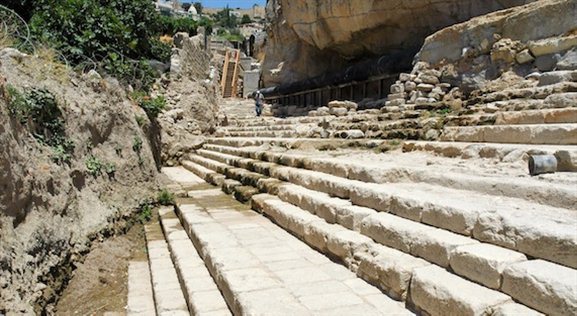Background Passages: John 15:1-3; Matthew 28:18-20; Galatians 5:22-23
Auxano.
Until the past month, this was not a familiar word to me. Greek in its etymology, Auxano means “to grow” or “to increase.” You’ll find the word scattered in verses throughout the New Testament.
When Paul used the word in Ephesians 4:15 or when Peter used “auxano” in I Peter 2:2 and 2 Peter 3:18, it speaks to how Christians are to grow or mature in the faith.
“Instead, speaking the truth in love, we will in all things grow up into him who is the Head, that is, Christ.” (Ephesians 4:15)
“Like newborn babies crave pure spiritual milk, so that by it you may grow up in your salvation, now that you have tasted that the Lord is good.” (I Peter 2:2)
“But grow in the grace and knowledge of our Lord and Savior Jesus Christ.” (2 Peter 3:18)
Couple those concepts with how Luke used the word when he shared the results of the Holy Spirit’s work in the days after Pentecost in Acts 6:7.
“So the word of God spread. the number of disciples in Jerusalem increased rapidly, and a large number of priests became obedient to the faith.”
Auxano, then, speaks to our ability as God’s people to grow in our faith, to live as followers or disciples of Christ, so that we, in turn, can bring more people to Christ and help them grow as disciples.
I first heard the word used this month as our new pastor introduced a Wednesday night initiative we call “Auxano,” designed to build disciples of Christ…to grow deeper in our understanding of what it means to be his disciple and to equip us, then, to share our faith in a relational way with those who do not yet know God’s saving grace.
For me, it’s gut check time. What does being a disciple of Christ mean to me and how well am I fulfilling the promise I made to him when I made my profession of faith as a nine-year-old? I have to admit, my growth as a disciple has been punctuated by a few seasons of drought amid the life-giving rain.
Zach Williams wrote and sings a song on Christian radio these days called Less Like Me. The chorus, I think, points to the goal of discipleship. the lyrics read,
“A little more like mercy, a little more like grace.
A little more like kindness, goodness, love and faith.
A little more like patience, a little more like peace.
A little more like Jesus, a little less like me.”
Being a disciple of Christ does not forfeit the uniqueness of a God-created me. Being me, being you, is still important because he gifted each of us differently and wonderfully for the work he called us to do individually. It does demand, however, that I become a little less like me and a little more like Jesus by growing in his example…a life that exemplifies mercy, kindness, goodness, love, patience and peace. If those words sound familiar it’s because they echo Paul’s words in Galatians.
“But the fruit of the Spirit is love, joy, peace, patience, kindness, goodness, faithfulness, gentleness and self-control. Against such things there is no law.” (Galatians 5:22-23)
As amazing as those God-given gifts may be, you’re only more like Jesus when you use his gifts to produce the spiritual fruit. These are the attitudes, behaviors and traits that someone who believes in Jesus and longs to be his disciple should demonstrate every day. Being a disciple of Christ means that we mature continually to be more like Christ.
Obedience to the teachings of Christ seems to be the key to discipleship. Everything he taught his disciples during his ministry on earth, he taught so they might be equipped to live as he lived. If you sit as a fly on the wall in the upper room, you’ll hear Jesus get serious with his closest followers.
As they finished eating together in the upper room on the night he was arrested, Jesus drew his disciples into a a deep conversation. He spoke of betrayal. He offered words of comfort when they seemed lost and confused. He promised the Holy Spirit as their constant companion in his absence. Then, he laid out the expectations he had for them to continue the work.
Drawing upon the familiar, he talked about the vine, its branches and the fruit it should bear.
“I am the true vine, and my Father is the gardener. He cuts off every branch in me that bears no fruit, while every branch that does bear fruit, he prunes so that it will be even more fruitful. You have already been prepared to bear fruit because of the teaching I have given to you. (John 15:1-3)
Within the imagery Jesus used, the vine is pruned to produce more fruit. A grower will prune extraneous branches that can siphon off the nutrients the plant needs. The main branches then grow stronger and produce more and better fruit. As we grow as Christians, we can let extraneous actions and attitudes sap the life out of our spiritual life. Jesus wants us to rid ourselves of those things that pull us away from living the life he has called us to live. To focus our lives on that which is important for us to do to further the kingdom of God. To be obedient to his teaching. To be his follower. His disciple.
We can’t begin to make that happen without spending time in his word. Paul reminded Timothy as he pastored the church in Ephesus that God’s word is the greatest teacher.
“All scripture is inspired by God and is useful to teach us what is true and to make us realize what is wrong in our lives. It corrects us when we are wrong and teaches us to do what is right. God uses it to prepare and equip his people to do every good work. (2 Timothy 3:16-17)
In her Christian blog, Butterflly Living, Mary Rooney Armand talked about eight elements of spiritual growth and discipleship. She said, “When we understand and practice elements of spiritual growth, it helps us move in the right direction.” The critical elements to discipleship, she says, are to:
Become more selfless.
Adjust how we spend our time.
Be more generous with our resources.
Pursue peace rather than chaos.
Choose to forgive.
Build deeper relationships.
Spend more time with God in prayer and worship.
Focus on the eternal rather than the temporal.
Armand’s list aligns closely to that which Jesus taught in the Beatitudes (Matthew 5:3-10) because it makes us more Christlike…more like a disciple of Christ.
Dietrich Bonhoeffer, a German Lutheran pastor and theologian, wrote extensively about a Christian’s role in a secular world at a time when Hitler was on the rise in Nazi Germany. His resistance to Hitler’s rule cost him his life.
Bonhoeffer wrote Nachfolge in 1937. The book title’s literal English translation is “Following” or “The Act of Following.” English publishers gave it a more dramatic title, translating Nachfolge as The Cost of Discipleship. In this seminal work, Bonhoeffer uses Jesus’ Sermon on the Mount as a call to faithful discipleship in the face of the Nazi’s reign of terror. It’s teaching still resonates well in today’s world when the Christian faith needs to stand for something beyond politics.
Bonhoeffer wrote that “Cheap grace is the mortal enemy of the church. Our struggle today is for costly grace.” Bonhoeffer goes on to define cheap grace.
“Cheap grace is preaching forgiveness without requiring repentance, baptism without church discipline, communion without confession…Cheap grace is grace without discipleship, grace without the cross, grace without Jesus Christ, living and incarnate.”
Part of the struggle of being a disciple of Christ is recognizing that we are made for more than just salvation. That marvelous grace gift is of eternal significance, but it is not the end of God’s work in us. Our gratitude for what God did for us through Jesus Christ should compel us to walk as he walked. Talk as he talked. Grow in our role as disciple. Share the love, grace and purpose of Christ to a lost world.
It is making a conscious decision to auxano…to grow, in grace and knowledge of our Lord and auxano…to increase the number of those entering the kingdom of God.
Being a disciple of Christ should catapult us toward fulfilling every part of the Great Commission, making new disciples and teaching them all those things he is still teaching us.
Auxano.
Grow. Increase.
It seems like a good word to embrace.









